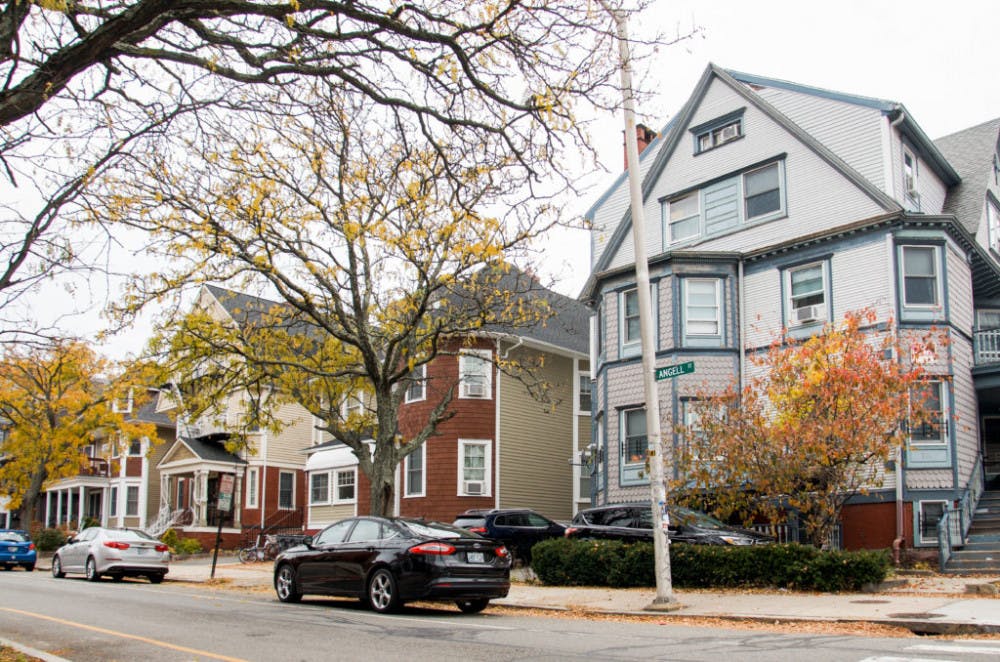As houses stand empty and more tenants face eviction in Rhode Island, there is an increasingly urgent need for state aid during a pandemic that has only worsened existing housing issues, according to Brenda Clement, director of Housingworks RI.
A pandemic, requiring a place to quarantine and isolate in, makes evictions especially dangerous. “You can't socially distance and you can't learn from home if you do not have a home which you could go to every day,” Clement said.
Affordable housing has long been an issue in the Ocean State and across the country, with one-third of all Rhode Islanders spending more than 30 percent of their income on housing — making them housing “cost-burdened,” according to Clement.
The 2020-21 budget passed Dec. 16 by the General Assembly of Rhode Island allocated $65 million for affordable housing. The funds aim to “support the design, development or repair of approximately 2,000 housing units across the state,” according to a press release from the Rhode Island government.
Still, the pandemic has only exacerbated the affordable housing crisis, said Terri Wright, an organizer at the Tenants and Homeowners Association (THA), a community campaign by Direct Actions for Rights and Equality. The THA consists of low-income tenants and homeowners who strive to prevent foreclosure, eviction and unsafe housing conditions in Providence, according to their website.
“My phone doesn't stop ringing,” Wright said. “There are a lot of calls about eviction notices during this pandemic. We have folks who are housing insecure that are in hotels, and they're wondering who's going to pay the hotel bills in the upcoming week. It’s just an ugly mess right now.”
Unfortunately, Clement said, the Rhode Island government is not addressing these issues or taking clear action beyond following federal policies.
“At the state level, we've never technically had a moratorium, as we've always relied on the federal moratoriums that took place,” Clement said. “But the reality is we can do more at the state level, as well.”
In addition, tenants are not receiving enough information about their rights, Abby Barton '22, a coordinator for the Housing Assistance Collaborative at Housing Opportunities for People Everywhere, said. The Centers for Disease Control and Prevention issued a moratorium Sept. 4 that protects people across the country and in state municipalities from a nonpayment of rent eviction if they make less than $99,000 each year. But, according to Barton, the moratorium is working very differently across states and municipalities.
“In Rhode Island, there's very little affirmative implementation of (the) moratorium,” Barton said. “It has fallen mostly on renters to find out about the moratorium, figure out how to fill out the piece of paper and then figure out how to give it to the landlord.”
HOPE Co-director of Community and Government Relations Lucas Fried ’21 agrees that residents have been left to figure out federal policies on their own. “The federal government hasn't been giving much clear messaging,” he said. “Most tenants don't really necessarily know that they are protected by (the moratorium).”
The State District Court issued an order effective Jan. 31 to implement the CDC’s Temporary Halt in Residential Evictions to Prevent the Further Spread of COVID-19, and extended the aid provided through the order to March 31, according to a Feb. 5 press release.
RI Legal Services has also set up a hotline to provide more information about the CDC moratorium, according to the City of Providence’s COVID-19 Housing Resource Guide. The state has also made $5 million in emergency rental assistance available to low-income renters affected by the pandemic.
Some community organizations have tried to step in to offer tenants additional support. According to Wright, the THA provides pro bono lawyers to help tenants and homeowners with their landlord issues. The campaign also hosts events and protests, including a dance parade to protect RI renters and homeowners. Housingworks RI has spent most of their time this past year trying to provide rental assistance and eviction money, Clement said.
But Wright believes that it is crucial to provide more aid to tenants and homeowners. “There's folks out there who don't have any money coming in, and they need to live somewhere,” she said. “Housing is a human right. I surely believe that, and we're working towards having everyone housed. We have the land, we have the space, we can create jobs and we have the opportunity. We just need to … move quickly on it, because people are dying of COVID.”
Ashley Guo is an arts & culture writer and layout designer. She previously covered city and state politics as a Metro section editor. In her free time, Ashley enjoys listening to music, swimming, and reading!





